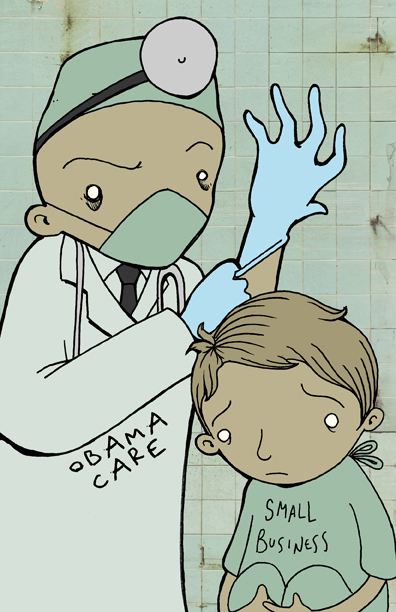Renee Backer, of Mrs. Backer’s Pastry Shop, has been researching the new Affordable Care Act. She found it hard to understand. “It is like making a cookie with arsenic and too much salt and pepper and then forcing people to buy it and eat it.” Her main concern is the impact the law will have on small businesses.
“This will be devastating to small businesses who flat out can’t afford it,” she says. One consequence that worries her and other small businesses is cutting employee hours because they may not be able to afford insurance for them. She sees this as hurtful for the business, hurtful for the employees, and also harmful for service. The amount of time people will have to wait will increase.
How does the affordable healthcare act affect one of the largest employers in the state? According to Ben Horsley, Granite School District spokesman, it would cost the district fourteen million dollars to fund health insurance for part-time employees. The solution was to mandate that no part-time district employee can work more than 29 hours a week.
Horsley says most part-time employees are hourly aids and school sweepers who in many cases are covered by alternative insurance within their own families. Those most affected by the cut in hours are people working multiple part-time school district jobs to get as many hours as possible. They no longer are able to accumulate hours going over the 29-hour limit.
The alternative to cutting part-time hours was for the district to cut full-time jobs done by teachers or administrators. That result would be bigger class sizes for students.
On the other side of the healthcare act are working families without insurance. Stephen Nageli works two part-time jobs to take care of his family. Neither job offers insurance. He says that he doesn’t know as much about his options as he should. With the deadline approaching he hasn’t had time to do the research.
When he has to make a decision he will probably look at Utah’s Split Healthcare Exchange that offers an alternative to the federal insurance. Not all states provide this option, but Utah is one that does.
Stephen feels he is “being squeezed into something and forced to make a choice.” He is going to opt for insurance rather than pay the penalties associated with not getting insurance. “It is better to pay for insurance than penalties.” He is not completely sold on the program and says he will just have to wait and see if it turns out to be a good thing or bad. §






